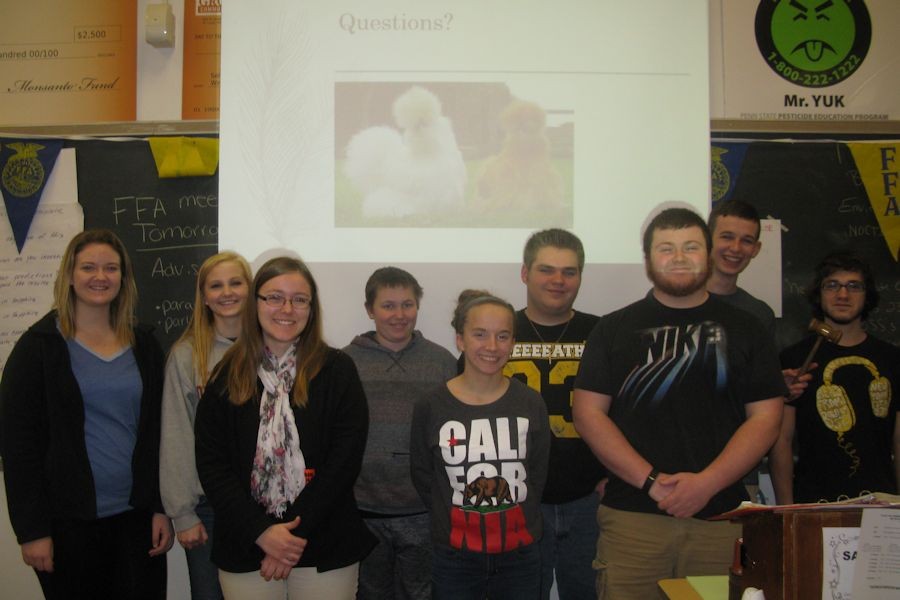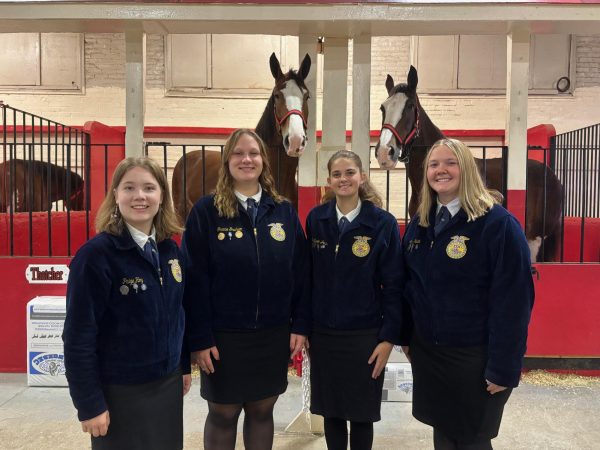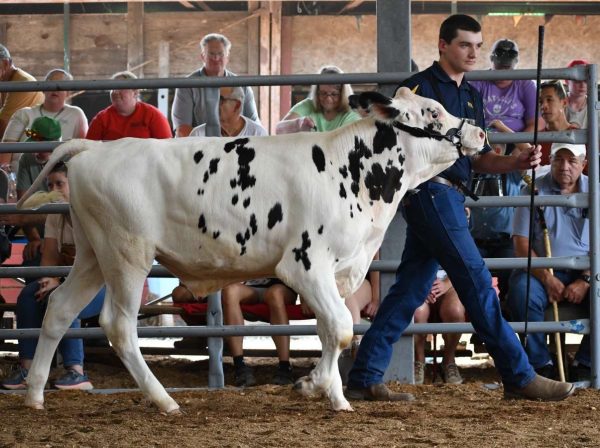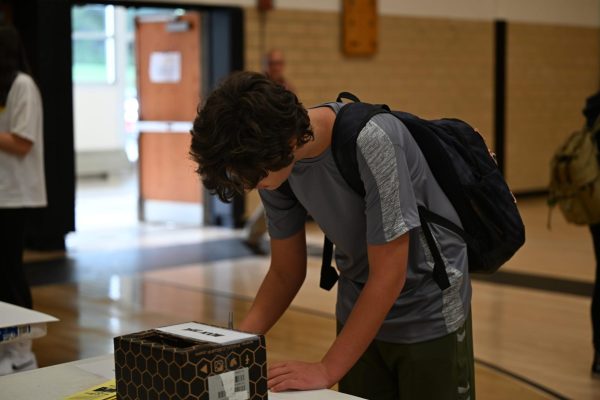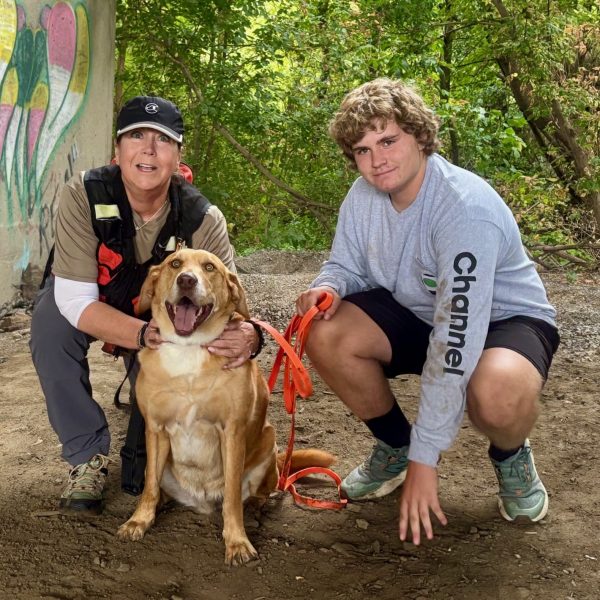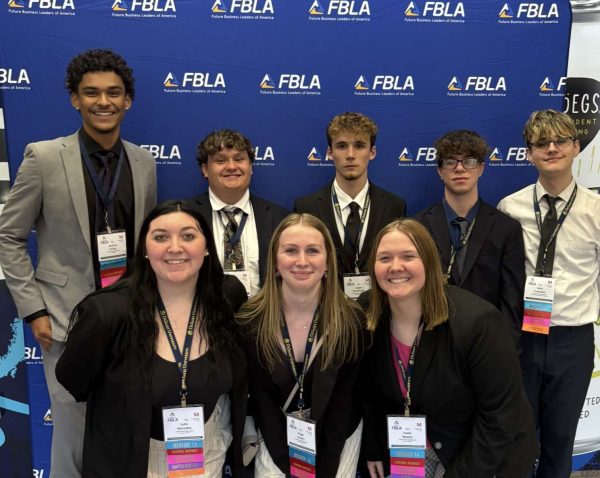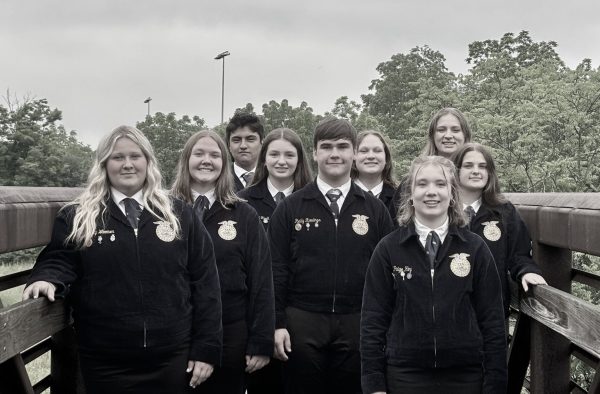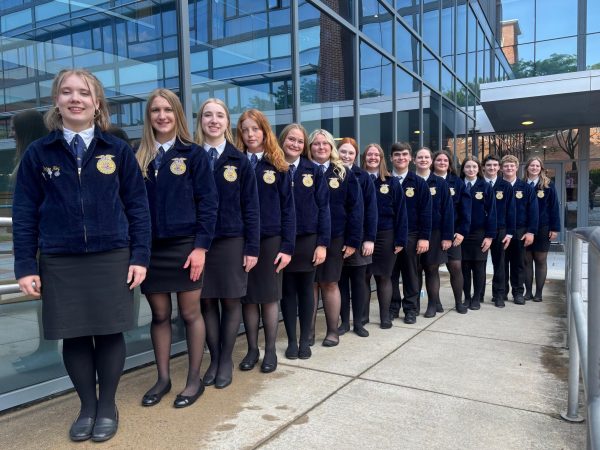USDA Addresses Youth at Tyrone High School
Pictured are some of the Food Science student: left to right – Maddie Branstetter, Maddie Veit, Heidi Herb (Presenter), Dane Williams, Tori Crabtree, Matthew Beam, Daniel Peterson, Brandon Decker and Dylan Stone.
Animal Health Technician from the USDA, Heidi Herb, spoke to over sixty Tyrone Area High School Agricultural Education and Microbiology students during her presentation on Avian Influenza on February 23.
“I really enjoyed learning about a new branch of animal that I never got into,” said FFA President Brandon Decker, “I was very appreciative that she took the time out of her schedule to come and teach us.”
USDA created this outreach program to communicate the impact of this disease not only on large operations, but on backyard flocks. This particular presentation also included information on the different forms of the influenza, how it mutates, bio-security and domestic vs. wildlife birds.
Herb spoke of what is considered the most serious animal health incident ever to happen in the United States—a large-scale outbreak of highly pathogenic avian influenza.
From the western coast of the country where mostly backyard flocks were affected to the Midwest where millions of birds were affected, highly pathogenic avian influenza very negatively affected many owners and producers.
“With the recent outbreak in Indiana, it is all the more important that bird owners and future agricultural professionals alike are aware of this disease and its potentially devastating effects,” said Herb.
USDA APHIS Veterinary Services is the branch of the USDA that is concerned with animal diseases of agricultural species.
Veterinary Services (VS) provides emergency response to outbreaks all over the country as well as surveillance testing and other tasks concerned with improving the health, quality, and marketability of our nation’s animals, animal products, and veterinary biologics. Outreach is also very important to us, as some of the diseases that are potentially extremely harmful to our nation’s animals also can be preventable with good bio-security practices—avian influenza included.

My name's Carly Crofcheck. I've been in the Tyrone Eagle Eye for four years and I'm a Senior at TAHS. Last year I was the Editor in Chief, this year...



